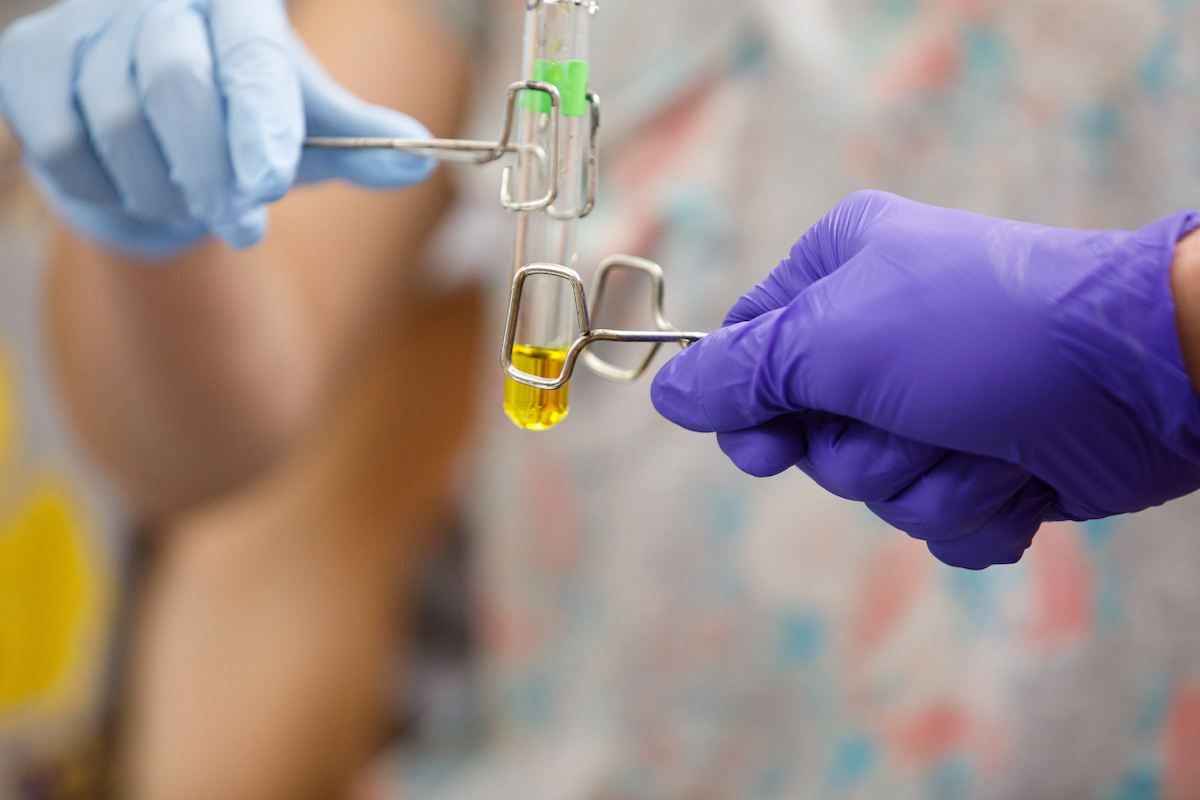Using an Albion foundation to step into larger research projects
Related Programs
Related Posts
Connect With Us
October 15, 2024
Birmingham senior Max Griffin developed a passion for chemical and biochemical research during the hundreds of hours spent in Albion College’s labs. He loved it so much, he said, that he developed a desire to be a part of research, but wanted to experience it at a larger scale.
“I wanted to be working in bigger labs on bigger projects to know what this type of collaboration feels like,” Griffin said.
Griffin found that opportunity this summer, thanks to an internship with the National Cancer Institute, a subsection of the National Institutes of Health, in Frederick, Maryland. He spent nearly three months investigating ways in which to better characterize the immune system’s response to tumors.
With the advice and guidance of his lab supervisor and other labmates, Griffin worked to find and optimize steps to create a never before completed molecule. His job was to test different reactions involving peptide sequences that are modified by the immune system. The short term goal of the research is to create a molecule to help us assess the inner workings of an immune system response. The most promising reactions will be scaled up and replicated by other researchers, with the long term goal of helping the development of therapeutic agents to fight cancer.
Obviously, the work required an impressive degree of skill – but on a certain level, Griffin said benchwork on its own is not the hardest part of academia.
He said one of the most difficult parts of synthetic chemistry is dedicating time to a reaction that does not work. “Synthesis is known for having its highs and lows,” Griffin explained. “To make the lows more bearable, I remind myself that I’m one step closer to a solution. There’s comfort in knowing what not to do.”
The internship required Griffin to learn an array of new skills, including manual and automated peptide synthesis, the characterization of amino acid chains, and a variety of instruments he had not used before. He credits Albion chemistry professors Craig Streu and Chris Rohlman with preparing him for these successes.
In addition to technical knowledge, Streu has fostered an environment of high-quality research that prepares people to work in any laboratory big or small.
“The Streu group allowed me to work around others in a collaborative manner nearly identical to what I experienced at the NCI,” Griffin said. “Dr. Streu’s encouragement of researchers learning autonomy gave me an advantage as soon as I got into the lab.”
As for Rohlman, “he dedicated so much of his time in class to teaching us how to analyze scientific papers,” Griffin said. “Dr. Rohlman made high-level academia understandable and he was available outside of class when I needed anything.”
Max Griffin is a senior majoring in biochemistry with a minor in cell and molecular biology and is a member of the Prentiss M. Brown Honors Program. President of both the Emergency Medical Services Club and the Biochemistry Club, Griffin is a member of Delta Tau Delta and a chemistry teaching assistant. He is the child of Shelly and Graham Griffin of Birmingham and is a graduate of E.W. Seaholm High School.
